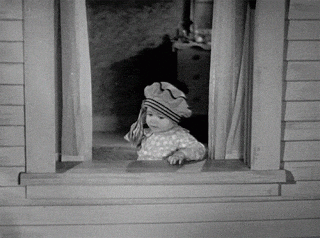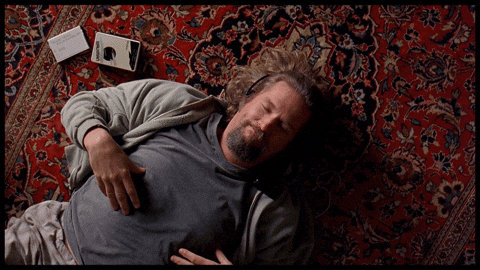Why Working on Your Trading Psychology Is Making You Worse
Here's what professional traders do instead.
The harder you try to fix your psychology, the worse your trading gets.
Here's why:
“You can't think your way out of a thinking problem.”
They say master your emotions, eliminate biases, become disciplined.
They're fundamentally wrong.
Most "psychology problems" aren't psychology problems at all.
When traders complain about overtrading, cutting winners early, or revenge trading, they assume it's a discipline issue. It's not.
It's usually a fundamental misunderstanding of what trading actually is—a probabilistic game where individual outcomes are meaningless noise.
As I detailed in Trading Isn't About Prediction.
Early in my career, I blamed psychology.
Read every book. Did the work.
My trading didn't improve, it collapsed.
The more I analyzed my patterns, the worse they became.
Then I discovered the Overthinking Paradox:
Fixing psychology creates a new problem: You become an observer instead of a trader.
This article will show you why the self-improvement approach fails and what actually works—building systems that function despite your psychology, not because of it.
In this article:
The Problem
When fixing yourself breaks your trading
Why self-awareness isn't enough in trading
The Observer Effect in Trading
The Perfectionist's Paradox
The Solution
Design for your flaws (don't try to fix them)
The professional's secret
From self-improvement to system sesign
Winner's tilt: How profits trick your brain
A professional give-back protocol
Implementation
The 3 types of traders—and how to manage your type
The anxious overthinker
The impulsive action taker
The emotional empath
The paradox of control
What you actually control
The liberation of systematic constraint
Replace psychological solutions with trading systems
Your Path Forward
Start Here: Your 30 day plan
When fixing yourself breaks your trading
A trader messaged me recently:
"I know that I overtrade when I’m bored. Revenge trade after losses. I know I struggle with FOMO. I've been working on these problems for years. But I'm still doing them."
Of course he is.
He's created a second full time job—monitoring his psychology while trying to trade.
Now he's not just watching the market.
He's watching himself watching the market.
He's thinking about his thinking about his thinking.
"This is cognitive overload disguised as self-awareness."
The research on overthinking reveals the mechanism: when you become hyper-aware of your mental processes, you activate your prefrontal cortex (analytical thinking) while trying to engage pattern recognition systems.
These neural networks compete for resources. Your brain literally can't do both simultaneously.
Result? You freeze. You hesitate.
You miss entries analyzing whether it's FOMO or genuine opportunity.
You screw up exits wondering if it's fear or good risk management.
The self-improvement industry thrives on convincing you that you're broken and need fixing. Applied to trading, this creates a doom loop:
You lose money (normal part of trading).
You blame your psychology (because that's the narrative).
You focus on psychological improvement.
Your trading deteriorates further (cognitive overload).
You double down on self-work.
Account destruction.
"The problem isn't your psychology.
The problem is trying to fix your psychology."
Now that you know why psychology focused advice backfires, let’s unpack precisely why awareness without systems can actually make you worse.
Why self-awareness isn't enough in trading
"Know thyself" sounds profound. In trading, it's a dangerous half-truth.
Self-awareness without systematic implementation is worse than ignorance. Here's why:
The Observer Effect in Trading
In quantum physics, merely observing a particle changes its behavior.
Similarly, becoming hyper aware of your trading psychology can inadvertently alter your behavior—often negatively.
Imagine you're patiently watching Crude Oil, waiting for a specific setup.
Suddenly, someone tweets:
"Futures ripping!!! #ES_F $NQ"
Instantly, your attention shifts to NQ.
It’s surging, but you have no defined setup, no clear plan, and no genuine edge.
Just price action and impulse.
Trading psychology literature instructs you to identify and resist this impulse, labeling it FOMO.
So, you do exactly that: you recognize it, and consciously tell yourself to stay put.
But now there's a problem:
You're hyper conscious of the impulse, yet powerless against it.
Your attention remains glued to NQ, anxiously watching it rip without you.
Meanwhile, your original Crude setup quietly forms and fades away, unnoticed.
Eventually, your resistance cracks—you impulsively buy NQ at the top.
Immediately, the market reverses.
You’re down money AND missed your original setup.
You correctly identified FOMO, yet you're worse off than before.
Why?
Because awareness without a clear systematic process amplifies the very psychological issues it tries to solve.
Here's the deeper truth most traders miss:
FOMO isn't the root problem—it's a symptom of lacking clearly defined setups and disciplined execution processes.
If your process were clear, well defined, and robust, your attention would be anchored to setups rather than external noise.
Tweets and market chatter would lose their power to disrupt you.
But trading psychology often misdiagnoses the cause, focusing instead on emotions themselves, treating human responses to uncertainty and risk as defects to fix.
You're left chasing an impossible goal:
Emotional perfection.
Every impulse or mistake feels like proof of psychological inadequacy.
Trading becomes therapy, endlessly self analyzing instead of systematically executing.
But here’s the thing:
Markets don’t require psychological perfection. They require systems designed to function despite your imperfections.
You don't eliminate emotions—you mitigate their impact through clear rules, structured setups, and disciplined execution.
In other words:
Systematic trading isn’t about being emotionless.
It’s about building a system that ensures your emotions never control your trading decisions.
Design for your flaws (don't try to fix them)
Here's the concept that changes everything:
“Stop fixing your psychology. Design systems that function despite it.”
This isn't giving up. It's engineering.
NASA doesn't try to eliminate human error, they build redundancies that function despite it.
Professional traders don't become psychologically perfect, they build perfect systems for psychologically imperfect humans.
The professional's secret
I know a trader very well who manages eight figures of capital.
Want to know his secret? He's an anxious overthinker who second-guesses everything.
He also prints money consistently. How?
“My psychology is terrible for discretionary trading—so I built systems that trade despite me.”
I explored this in my piece Why Edge Isn't Enough—efficiency matters more than raw edge.
His "psychological flaws" and solutions:
Chronic anxiety → Automated entry/exit algos
Analysis paralysis → Hard time limits on decisions
Loss aversion → Position sizing locked by formula
FOMO → Can only trade setups from his defined playbook
He didn't fix his psychology. He made it irrelevant to his P&L.
"Professional traders don't become psychologically perfect—
they build perfect systems for psychologically imperfect humans."
From self-improvement to system design
The shift is profound:
Old approach: "I need to become less emotional"
New approach: "I need systems that function regardless of emotions"Old approach: "I must eliminate my biases"
New approach: "I must design around my biases"Old approach: "I should be more disciplined"
New approach: "I need systems that enforce discipline externally"
This isn't lowering standards. It's accepting reality. Your psychology evolved for survival on the savanna, not for managing basis risk in ES futures.
"Fighting evolution is stupid.
Building systems that channel it is genius."
Winner's tilt: How profits trick your brain
A trader messaged me:
"I'm doing really good most days but I just don't know when to pack it in. Always end up giving back my gains. Never could leave the casino while ahead."
It's not a psychology problem.
It's a dopamine problem mixed with the "house money" delusion.
"Winner's tilt" is your brain on natural drugs plus a cognitive bias.
When you're up big, dopamine floods your system while your brain whispers "house money"—like those profits aren't really yours yet.
Your risk perception changes at the biochemical level. You get overconfident.
"I'm reading the market perfectly today. Why not press? I'm in profit anyway."
Recently, our risk manager Dan shared a story during a recent fireside chat about a trader he knew:
The trader was up £990,000 trading Eurostoxx after the cash close. He was just one tick away from a million-pound day. Wanting that nice, round number, he pressed for one final scalp—1000 lots, one tick, £10 per tick.
Moments later, Dan’s phone blew up. The trader had gone from +£990k to flat. Not up £500k. Not even up £100k. Completely flat. Zero.
All chasing one meaningless tick.
Look, when something's working, you absolutely should press—but never at the cost of turning a winner into a loser.
"The biggest trading days often become the biggest give-back days because success itself impairs judgment."
You're biochemically high and cognitively biased. That's a dangerous combination.
The give-back protocol that actually works
Professional futures traders don't fight the dopamine high or try to remember "it's not house money."
They pre-program responses for when they're impaired:
The 50% rule:
General principle: never give back more than 50% of your day's high-water mark.
At professional firms like ours, risk managers get involved when traders approach this threshold.
Example: Up $100k and down to $70k? Time for a conversation. The goal isn't to stop trading. It's to assess whether you're giving back to afternoon chop or genuinely seeing opportunity.
The goal isn’t simply to stop trading, but to assess context and market conditions:
Time of day: Morning momentum often continues, afternoons frequently chop.
Market regime: Trending day versus ranging day matters greatly.
Event risk: Major events (Lehman collapse, COVID, Trump tariff announcements) often sustain volatility through the close. On big news days, it might make sense to press your advantage. Random Tuesday afternoon? Probably not.
Your edge: Are you genuinely seeing high-quality setups, or just chasing action?
Position Size Decay (scaled to your P&L):
First 100% of your normal daily P&L: Full size
Next 50%: Max 75% size
Next 50%: Max 50% size
Beyond 200% of normal day: Max 25% size
Of course, you should press your advantage when you're trading well—capturing large, fat-tailed days can dramatically improve performance. But resist the urge to dramatically scale up risk once you’re already significantly beyond your usual performance bands.
For a deeper dive on managing position sizing and expected value, see Making Decisions Under Uncertainty.
"Professionals recognize their future psychological state will be compromised, so they bind that future self with systems."
This isn't weakness. This is how professionals protect capital.
The best futures traders I know have variations of this. Some have hard stops (up huge before noon? Done for day.)
Others use context-dependent rules. But they all share one thing in common:
They decided the rules when calm, not when high on profits.
The 3 types of traders—and how to manage your type
Every trading educator wants to transform you from anxious to calm, from impulsive to patient. This is expensive fiction.
Your core wiring doesn't change. But you can build systems that channel it productively.
1. The anxious overthinker
You see danger everywhere. Analyze endlessly. Hesitate constantly.
Stop trying to: Become perfectly calm and decisive.
Start building: Clear, structured processes that neutralize analysis paralysis.
Jeff Bezos offers a brilliant framework:
One-way doors versus two-way doors.
Most trading decisions are two-way doors—you can reverse them quickly with minimal cost.
But overthinkers treat every trade like a one-way door, analyzing it to death.
Solution:
Clearly map your trade hypothesis and scenarios in advance.
Establish concrete, rule based entries and exits—automated bracket orders.
Use chess timers or structured decision checklists to limit real-time analysis.
Your anxiety wants a job: give it scenario-planning, risk management, and position sizing.
Keep it away from spontaneous entry/exit decisions.
2. The impulsive action taker
You see opportunity everywhere. Trade first, think later.
Stop trying to: Become patient or analytical in the moment.
Start building: Clear "speed bumps" and rigorous pre-trade checklists.
Solution:
Trade exclusively from a defined playbook prepared before the market opens.
Pre-market checklist: hypothesis, scenario mapping, invalidation criteria.
Scale position size inversely with your emotional excitement level.
Mandatory 1-minute pre-trade journaling: forces pause, clarity, and discipline.
Your impulsiveness is fuel. Don’t extinguish it, just channel it through structured checkpoints.
3. The emotional empath
You viscerally feel market emotions—euphoria and panic hit hard.
Stop trying to: Achieve emotional neutrality (impossible and unnecessary).
Start building: Explicit frameworks to translate your emotional signals into objective actions.
Solution:
When emotions spike, cross-check objective market indicators (e.g. VIX, put-call ratios).
Pre-plan automated risk adjustments when volatility metrics surge.
Use timed "cooling-off" periods during extreme market emotions.
Keep a brief, structured emotional journal to objectively track your emotional reactions and their market signals.
Your emotional sensitivity is powerful market radar. Keep it on—but guide it systematically rather than impulsively.
There's a paradox at the heart of trading:
“The more you try to control your psychology, the less control you actually have.”
This isn’t philosophy—it’s practicality.
You have limited cognitive resources.
Every moment spent wrestling with your thoughts and feelings is a moment lost from clearly analyzing the market and executing trades effectively.
Professionals don’t waste their limited bandwidth on internal battles. They accept their mental state as it is and design systems that perform consistently despite it.
They know that real control isn't about changing your emotions—it's about structuring your actions.
What you actually control
Forget self-help fantasies about controlling thoughts and emotions. Here's your actual control surface:
Before market hours:
System design and testing
Position sizing rules
Entry/exit criteria
Risk parameters
Pre-market analysis
During market hours:
Following the system
Nothing else
That's it. Everything else (your emotions, thoughts, reactions) is just weather.
“You don't control weather.
You build structures that withstand it.”
The liberation of systematic constraint
This sounds limiting. It’s liberating.
When you accept what you can't control and systematize what you can, something profound happens:
“The internal war ends.”
That energy you burned trying to be psychologically perfect? Now it's available for market analysis.
That time you spent journaling about feelings? Now it's spent refining systems.
“You become a trader instead of an amateur psychologist trying to trade.”
Systems beat psychology
The shift from psychological work to systems work changes everything:
Old way: the psychology trap
Problem: “I exit winners too early”
Solution: “Work on fear of giving back profits”
Process: Months of self-analysis, affirmations, visualization
Result: Still exiting early, now feeling guilty about it
Reality: Wasted time and energy, no P&L improvement
New way: the structured approach
Problem: "I exit winners too early."
Solution: Clearly defined trade plan with pre-determined targets and scenario analysis before entering the trade.
Process: Write down hypothesis, target, and stop loss. Map scenarios in advance (entry, exit, invalidation).
Result: You hold winning trades to your logical targets rather than emotional exits.
Reality: Improved consistency, reduced emotional interference, and direct, measurable improvement in P&L.
“Good systems create good psychological states—not the other way around.”
The beautiful paradox?
When systems handle execution, psychology naturally improves. Success builds confidence.
Consistency reduces anxiety.
The truth professional traders won't admit publicly
"They're just as psychologically flawed as you. Same fears, same biases, same emotional reactions."
The difference isn't psychological superiority—it's systematic superiority.
They've accepted their humanity and built accordingly. You're trying to transcend humanity and trade accordingly.
Who do you think wins?
Stop fixing yourself—start fixing your systems
Stop the self-improvement marathon.
Start the systems sprint:
Accept your psychological reality (anxious/impulsive/emotional)
Design systems that function despite it (not fight it)
Implement mechanical solutions (not mental ones)
Iterate on systems (not yourself)
This isn't giving up on growth—it's growing intelligently.
Every system improvement is permanent.
Every psychological "improvement" is temporary—one bad day and you're back to square one.
“Build systems that work when you're at your worst,
and you'll thrive when you're at your best.”
How to immediately implement what you've just read
Step 1: Identify your primary trading tendency
Anxious overthinker, impulsive action-taker, or emotional empath?
Step 2: Pick one targeted, structured solution
Overthinker: Scenario map your next 5 trades fully in advance.
Impulsive: Commit to trading only setups defined clearly the night before.
Emotional: Implement a clear, predefined rule triggered by emotional extremes (e.g., volatility spike rule).
Step 3: Run it live and track objectively
Journal results neutrally—no judgment, no psychology analysis, just data.
Step 4: Adjust the system, not yourself
After 2–4 weeks, objectively evaluate results. Refine your rules to improve outcomes.
Start small. Focus on structural solutions first, then build momentum.
Agree, disagree, or have your own experience? Share it below, let's discuss.







Thanks Ryan. I’ve often felt like something was missing when “thinking” about trading psychology, but was never able to put a finger on it. This is very helpful.
Can you do an article explaining your thoughts on trade journaling?
Thanks
Thanks Ryan- this is your best one yet! Looking forward to more actionable insight.